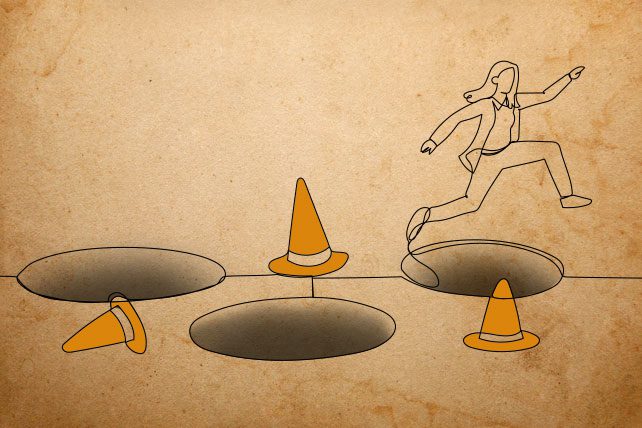Children’s ministry leader: Do ever feel frustrated about your work? Do you ever question your role or calling? If so, read one veteran kidmin worker’s story and tips.
As I stood in front of a couple hundred elementary-age kids, my mind was racing. I was in the middle of telling the story for large-group time but realized several props were missing. These were pretty big—and necessary!—props. Yet I had no idea where they were.
But I did know why they weren’t there. I had become comfortable. We had a system for Sunday morning, and we had become so used to the system that we were comfortable. As a result, we did quick run-throughs instead of the step-by-step checks we were supposed to be doing.
And we, or rather I, missed making sure all the necessary props were on stage and in place. As a leader, I learned a valuable lesson that day: to avoid getting caught in the trap of being comfortable. Read on to discover other kidmin traps…and how to avoid them.
5 Traps Every Children’s Ministry Leader Should Avoid
1. Comfort
Systems, processes and standard operating procedures are important. Done correctly, they leave plenty of room for creativity, flexibility and even spontaneity. But they also open the door for getting a little too complacent. Essentially, we say, “We do this so much we don’t need to prepare as much.” That’s when we get caught.
As a leader, have you become too comfortable with something in your children’s ministry?
2. Small-Church Thinking
We’re just a small church and know everyone. So we don’t need to worry too much about security. If I had a few bucks for every time I’ve heard this as I’ve consulted with churches, I’d be able to take a nice vacation. Don’t buy it! This is foolish thinking, on this issue or any other. Being a smaller congregation doesn’t give you an excuse to be less than excellent.
Kidmin leader: What areas of your ministry do you need to shore up?
3. Hoarding
No one can do it as well as I do, a leader often thinks. When it comes to the individual tasks of ministry, you’re probably right. But when it comes to the collective job of ministry to children, you couldn’t be more wrong. Hoarding tasks to do ourselves is selfish and short-sighted. It limits the potential of you and your children’s ministry. It disengages and diminishes the work of others. It’s small-minded.
What tasks do you need to equip others to do so you can remain primarily focused on doing those things only you can do?

